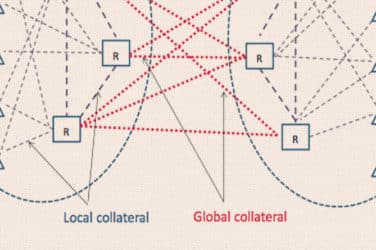
Market participants are continuing to prepare for new margin requirements for uncleared derivatives which come into force next month despite US regulators recommending no enforcement for six months.
New rules requiring the exchange of variation margin for uncleared over-the-counter derivatives will come into effect globally on 1 March and immediately apply to a wide variety of counterparties including a variety of dealers, buyside firms, pension funds and corporates. The implementation of the variation margin rules differs from the initial margin rules introduced in September last year that were phased in over a period of time, beginning with the largest dealers.
As a result, last week the Commodity Futures Trading Commission, the US regulator, recommended that no enforcement actions are taken against swap dealers that fail to comply with the variation margin requirements until September 1.
David White, head of sales at triResolve, told Markets Media: “If there has been a sigh of relief in the US, it has been small. Even with the statement of recommended no enforcement, the March 1 deadline remains”.
TriOptima, the Nex Group unit which provides post-trade infrastructure for OTC derivatives, has launched triResolve Margin, which provides an automated and exception-based margin processing solution.
J Christopher Giancarlo, acting chairman of the CFTC, said in a statement: “The facts on the ground cannot be ignored that as much as 90% of those end-users are not ready to meet the new requirements despite their best efforts to do so. Global systemic risk is not reduced by the abrupt cessation of risk hedging activity by American life insurance companies and retirement funds at a time of enormous changes in financial rates and global asset values.”
Giancarlo added that the CFTC has not changed the scheduled time of arrival for the agreed margin implementation and European regulators have not delayed the rules.
White said: “There are still huge legal and operational challenges to meet the March deadline and clients are aiming to be compliant as soon as possible.”
More than 60 clients have adopted the triResolve Margin service including dealers, asset managers and corporates as the new rules will increase the volume and complexity of margin calls.
“The automation of collateral is vitally important as operational demands increase and it becomes a regulated part of the business for the first time,” added White. “Moving the industry to a more exception-based process will be key in the new world.”
TriResolve Margin integrates with the triResolve portfolio reconciliation service used by over 1,800 firms.
“We continue to look at ways we can provide new services leveraging this beyond the reporting validation and margin services we offer today,” added White. “One example we are looking closely at is how we can assist in the validation of data reportable under MiFID II.”
MiFID II will come into effect at the beginning of 2018 for financial markets in the European Union and includes new reporting requirements across a wide range of asset classes for the first time.
LCH, the clearing business owned by the London Stock Exchange Group, is also preparing for the variation margin rules.
Last November LCH said it was launching LCH SwapAgent in the first half of this year for processing trades in the OTC bilateral rates and foreign exchange markets. When using SwapAgent, LCH will not become the clearing counterparty but will act as an independent calculation agent, facilitating the calculation and exchange of bilateral margin. Clients will be able to use the service for standardized document terms, trade processing, margining and payment processing and can send trade details for their uncleared trades alongside data for the trades that will be cleared. Fourteen dealers have signed up for LCH SwapAgent.





